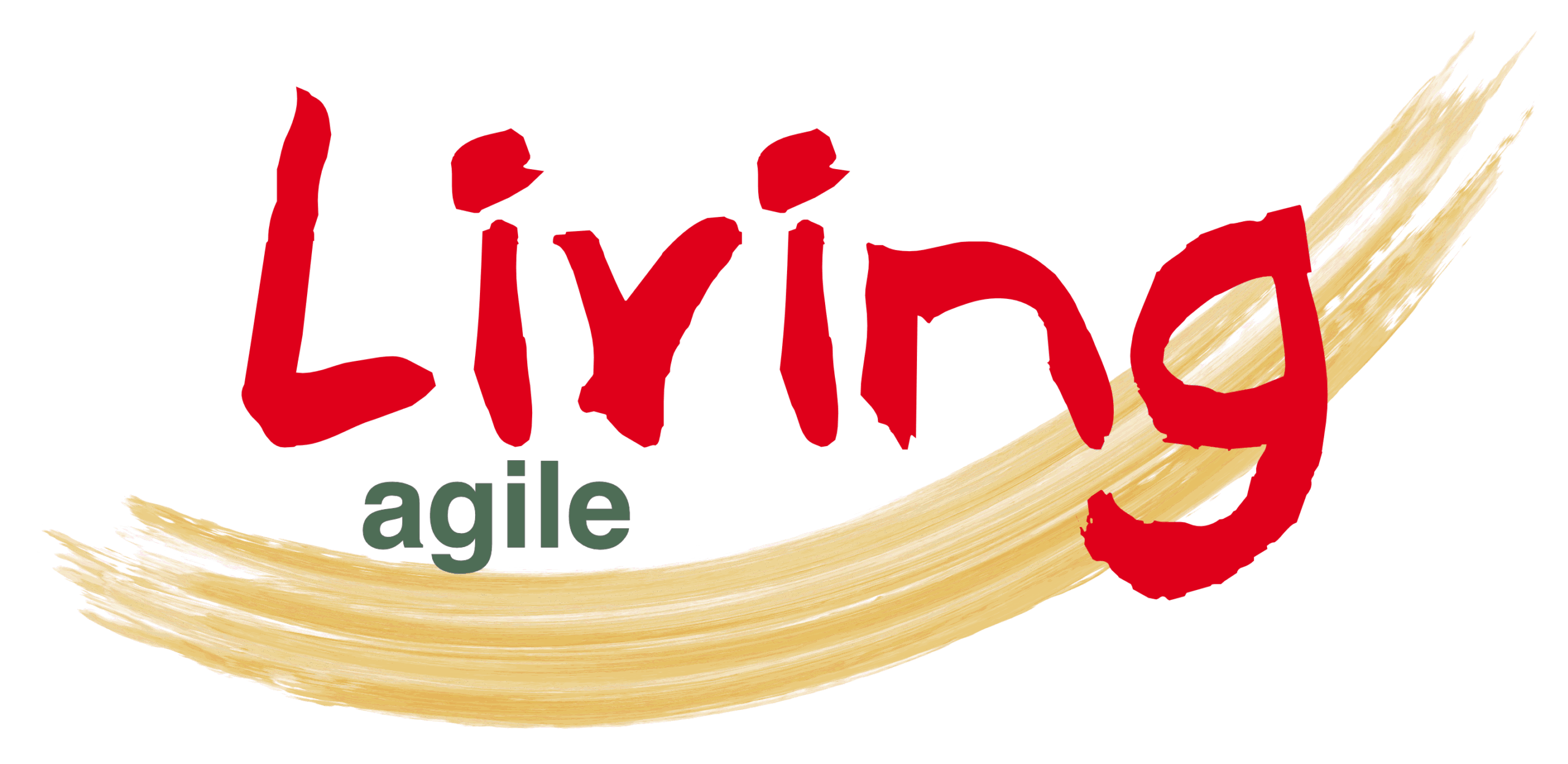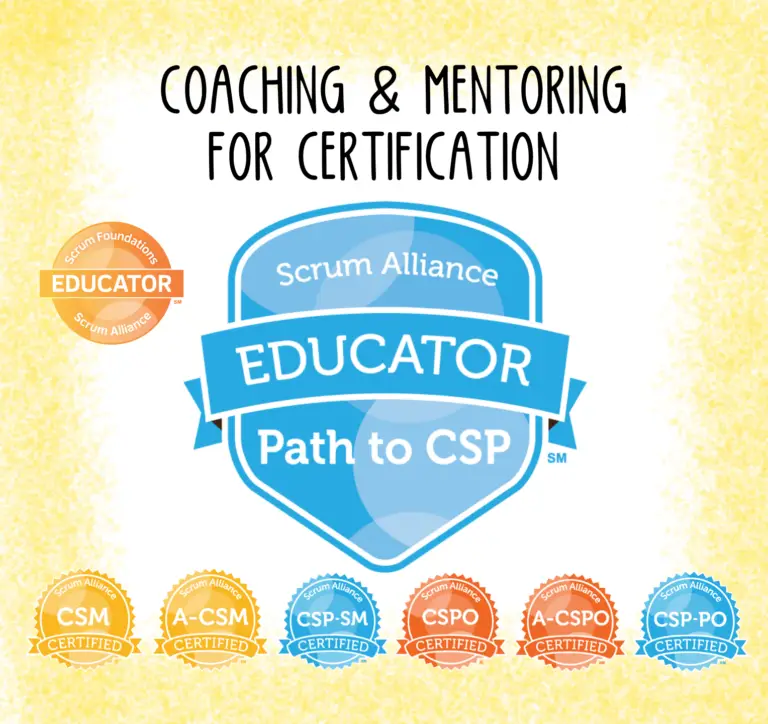revival of certification
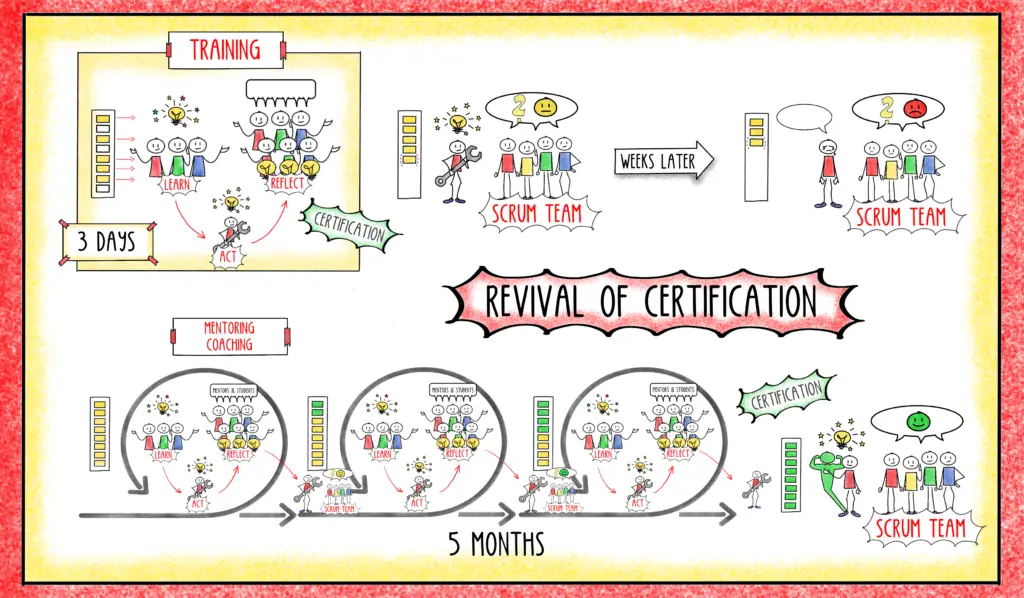
Many companies or teams start their journey into agility with the agile framework Scrum. Scrum is easy to understand and has few rules. And it is precisely this that often becomes a challenge. Employees take training courses to become Scrum Masters and Product Owners and try to implement Scrum in the organisation. After six months, some say “Scrum doesn’t work for us”.
There are certainly many reasons for this, which can also lie in the organisation. Today we would like to look at one possible cause: How can working with Scrum be learned in a sustainable way?
CERTIFICATES AND THE PROBLEMS WITH THEM
And because Scrum often does not work as hoped, certification in the agile context is often questioned at the moment. Certificates can be acquired in 2-3 days of training without the role ever having been lived.
Currently, the Scrum Alliance and Scrum.org are the leading organisations offering various certification options.
The basic certificates for Scrum Master (CSM) and Product Owner (CSPO) are offered by the Scrum Alliance in 2-3 day courses. For some time now, relatively unnoticed, there has also been the possibility of obtaining certification through coaching by Certified Agile Coaches (CAC).
PSM and PSPO from Scrum.org only require passing an assessment. These are cheaper than with the Scrum Alliance and can be taken immediately.
Another difference is that Scrum Alliance certifications become inactive if the holder of the certification does not demonstrate regular training.
The certification, which is acquired in 2-3 day trainings or by taking an assessment, first of all proves that the certified person has dealt with the Scrum Guide and can reproduce the content accordingly. A deeper understanding behind it and its implications for daily work is not acquired. This can only be acquired and expanded through intensive examination and experience in everyday life.
Our wish was and is to support sustainable change. This made it clear to us that we create more value for a company if we pass on our knowledge and experience to employees and support them in living Scrum in the company so that the advantages of the agile way of working become visible and measurable.
This gave rise to the idea of creating a space for learning together in small groups while reflecting on and accompanying the challenges in working life.
MENTORING AS A KEY ELEMENT
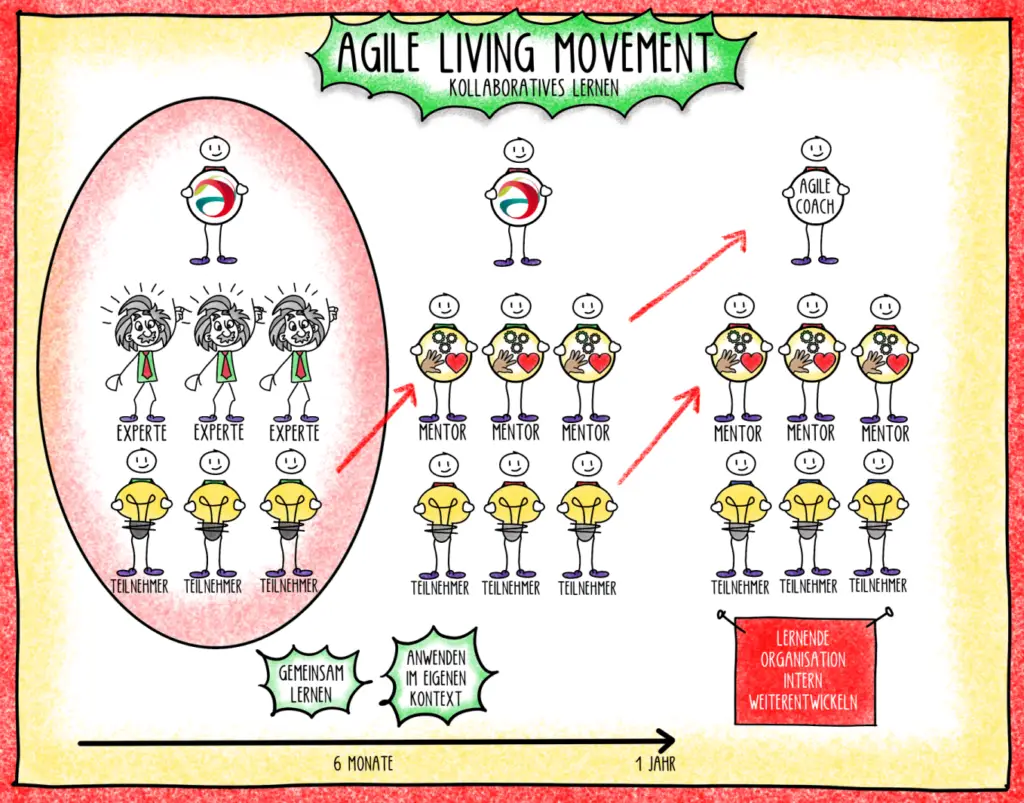
Initial participants of the programme are accompanied by experienced Agile coaches. As mentors, they are there to accompany the learners with reflection and feedback.
The mentors take on different roles. Agile coach, consultant, but also confidant. They can bring in new techniques that are applied in the specific context of the learner.
All participants can contribute and develop themselves as mentors in subsequent programmes. This provides them with new insights, deepening and further development of the learning content.
the learnings
The Agile Coaching Competency Framework lists the competencies that we systematically build, reflect on and develop within the journey with the coaching and mentoring programme (Agile Living Movement).
Core content is covered by the Learning Objectives of the Scrum Alliance for the roles Scrum Master, Product Owner and Agile Developer. This covers all learning content required for certification according to Scrum Alliance.
The competences from the Agile Coaching Competency Framework go far beyond this. For this purpose, the Agile Living Movement offers additional elements that lead to the development of these competences.
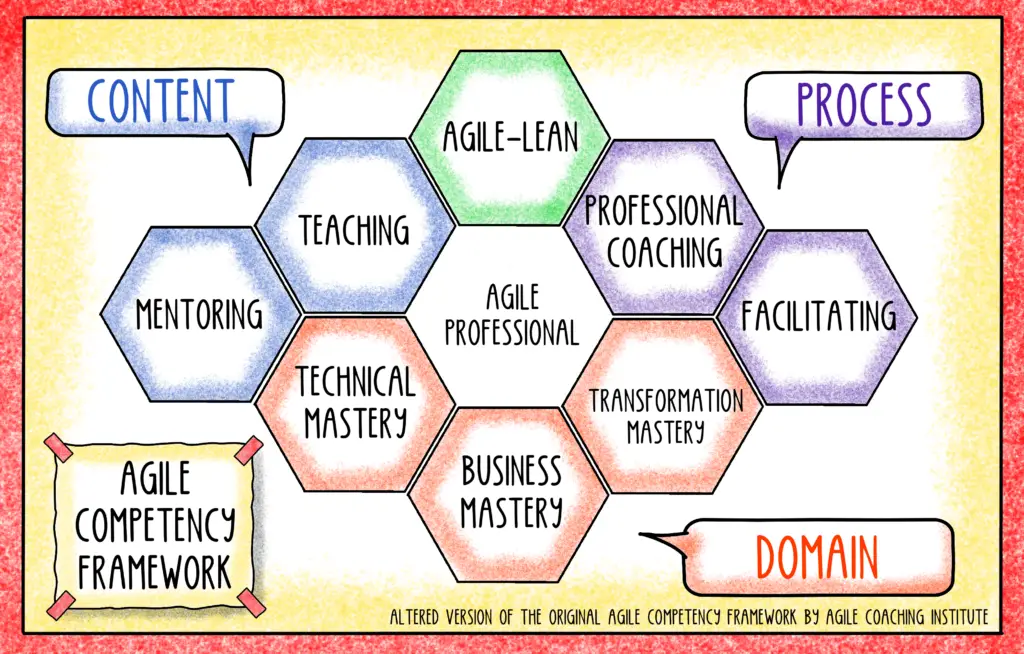
There are regular coaching dojos, supervision, coding dojos, team huddles for self-organised learning, retrospectives to improve the learning journey, and training in facilitation, feedback and communication. The core pillar is the support of coaches and mentor:ing throughout for reflection and support for use in everyday life.
THE BEGINNING OF A MOVEMENT
After a generation has ended, the learners are free to either contribute situationally to the community or to become mentors themselves for subsequent generations. Scrum Masters in particular benefit from being mentors because it is an inherent part of their role.
The opportunity to learn and pass on knowledge creates a transformative effect that contributes to Scrum being carried into the company in a sustainable way.
Participants can network across the different areas of the company through Agile Living Movement, share their challenges and successes and can learn from each other.
Resilience, dealing with change and enduring uncertainty are important skills for any transformation. This can be fostered and developed with coaching dojos, supervision and retrospectives together with colleagues. This often leads to insights and ideas for initiatives to solve problems in one’s own work, with teams and within the organisation.
A learning programme becomes a movement that slowly but steadily changes the company.
CERTIFICATION – A NEW EXPERIENCE
Certification trainings provide new impulses, new skills, new perspectives and the earning of a certificate. This is valuable.
A coaching and mentoring programme uses these effects and builds on them by living what is learned and reflecting on it regularly over time. With this, we have seen Basic Scrum Masters, Product Owners and Devolpers feel confident in their new roles and become more effective upon completion of the programme.
The great benefit of certification with a coaching and mentoring programme is that the participants not only acquire the knowledge, but also develop the confidence to fulfil their new role well.
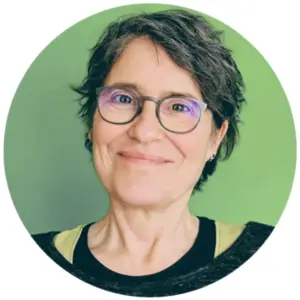
Bettina Ruggeri
Certified Agile Coach (Scrum Alliance)

Sven Schnee
Agile Coach
